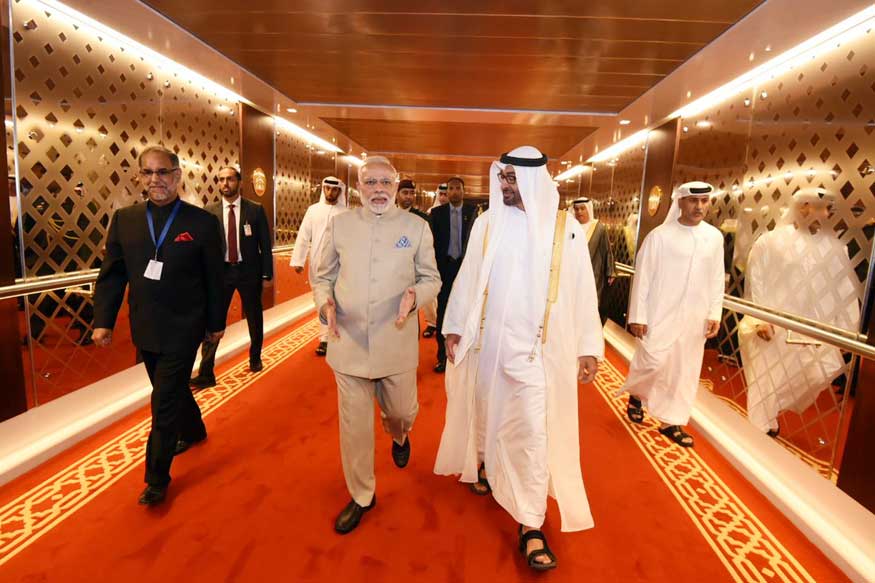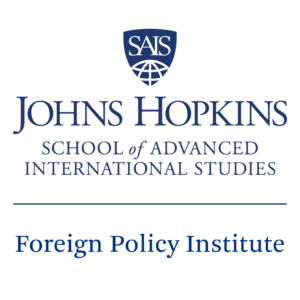The Highly Regarded Indian Foreign Affairs Columnist C. Raja Mohan Sees a New Dawn in the Arabian Peninsula and Wants Delhi to See it Too
C. Raja Mohan is one of India’s leading foreign policy thinkers and perhaps its preeminent foreign affairs columnist. What Mohan writes matters, and his columns are read widely among India’s political elite. That’s why it’s worth diving deep into a series of Mohan’s columns about the Middle East region over the past six months because he challenges policy-makers in Delhi to shed old prejudices and predilections and see the region for what it is today: deeply divided, strategically vital, and heralding a promising opportunity in the Arabian peninsula. Forget the non-Aligned movement, Pakistan-driven paranoia of the past and look deeper at the strategic shifts taking place, he seems to be saying. Those shifts spell opportunities for Delhi.
The old Non-Aligned mentality in Indian foreign policy that saw U.S allies as part of “Western imperialism” has taken a long time to die in Indian foreign policy circles, and still resonates among some. The other aging attitude that views Middle East allies through the Pakistan lens has also taken too long to die, particularly given the evolving nature of Pakistan’s ties to several Middle East states. What Indian foreign policy elites need, it seems, is an update of their hard drives.
As Mohan notes in one of his columns, “India’s emphasis was on solidarity with Arab nationalism and against neo-colonialism and Western imperialism. Given its preference for ‘secular republics’ in the Middle East, an element of defensiveness inevitably crept up in India’s relations with the religiously conservative monarchies, especially Saudi Arabia.” He argues now that it is in India’s national interest to support reform efforts led by Saudi Crown Prince Mohammad bin Salman and has noted that Riyadh has increasingly de-hyphenated its relations with Delhi, away from a Pakistan first vision.
Mohan is urging Delhi to see the region for what it is today, rather than live with old slogans. Mohan specifically cites the United Arab Emirates as a place of transformative change that can push the broader region in a direction that would be beneficial to India. He also notes “civilizational” bonds between the Arabian peninsula states linked to India via the western Indian Ocean, Arabian Sea, and the Persian Gulf.
This strikes me as a new way of looking at relations that, in the past, were more transactional. “Civilizational bonds,” in Indian strategic thinking, tended to be reserved for old civilizations like Iran, but Mohan has added a civilizational layer to a growing strategic one between India and key Gulf states UAE and Saudi Arabia.
It often struck me as odd that few Indian Prime Ministers would visit the United Arab Emirates regularly until Narendra Modi broke that pattern in 2015, the first Indian PM to visit the UAE since 1981 (he visited again in 2018, and even Congress party leader Rahul Gandhi has made a UAE pilgrimage recently). This lack of attention to the UAE felt to me like a case of foreign policy malpractice given the dynamic commercial relations between the UAE, principally Dubai, and India, not to mention the huge numbers of Indian expatriates — from laborer to senior executive — living and working in the UAE.
For a run-down on the UAE-India commercial relationship, see my piece in Reuters last year – India’s Most Vital Hub City Isn’t in India. I’m also at work on a monograph on UAE-India geo-economic ties, and during the course of research, I’ve often been startled by how deeply these economies are intertwined. More on that coming in these pages soon.
In one of Mohan’s most important columns, entitled “Rethinking the Gulf,” he points to the emerging growth of a “moderate Arab centre” led by the UAE as one that “should resonate deeply with India’s natural ethos and its traditional empathy for modernising forces in the Arab world. Helping the construction of a moderate Arab centre envisaged by Abu Dhabi, then, is very much in India’s interest.”
Critically, he places the movement to push back against political Islam, centered in Abu Dhabi, as not simply an interesting development in the Muslim world, but vital to India and the broader subcontinent’s future. In a column about the visit of Pope Francis to Abu Dhabi, Mohan notes that “the story, arguably, is less about the Pope and more about the United Arab Emirates that is hosting him.” He describes the invitation to the Pope as “very much part of UAE’s surprising charge for religious tolerance, inter-faith harmony and separating religion from the state in the Middle East.”
“No one is betting that the relatively new federation of seven small sheikhdoms…can change the political narrative in and about the Middle East,” Mohan writes but “few countries have a bigger stake in UAE’s success than India.”
“For the decline of the forces of moderation and modernisation in the Middle East, the inevitable export of radical ideologies and the mobilisation of religious identities for political purposes has had a devastating impact on the Subcontinent’s politics — internal, intra-regional and external. The success of the UAE’s project for a moderate Arab centre would hopefully make it easier for India and its neighbours to revitalise the great Subcontinental tradition of inter-faith harmony. Arabia’s embrace of the Pope, paradoxically, is also about the virtue of separating religion from state, a principle that India has been dangerously tempted to devalue.”
Mohan also points to “the growing impact of the Gulf countries in the Indian Ocean region. Nowhere is this more evident than the Horn of Africa. The recent success of the UAE and Saudi Arabia in brokering peace between Ethiopia and Eritrea who had been locked in a prolonged conflict underlines the positive role of the Gulf in Africa.”
“The Gulf states have relied in the past on the Anglo-Americans for their security. As America and Britain gaze at their own navel, the Gulf states are taking greater responsibility for managing the regional order. The conditions under which India could afford to take a purely bilateral approach to the Gulf nations are beginning to disappear. India needs an integrated regional strategy to secure its ever-rising stakes in the Middle East and the Western Indian Ocean.”
All of his Middle East (or, as they say in Delhi, “West Asia”) columns are worth reading, and I have linked them all below:
India’s Solidary with Prince Mohammad bin Salman Reform Agenda Back Home Is Important


